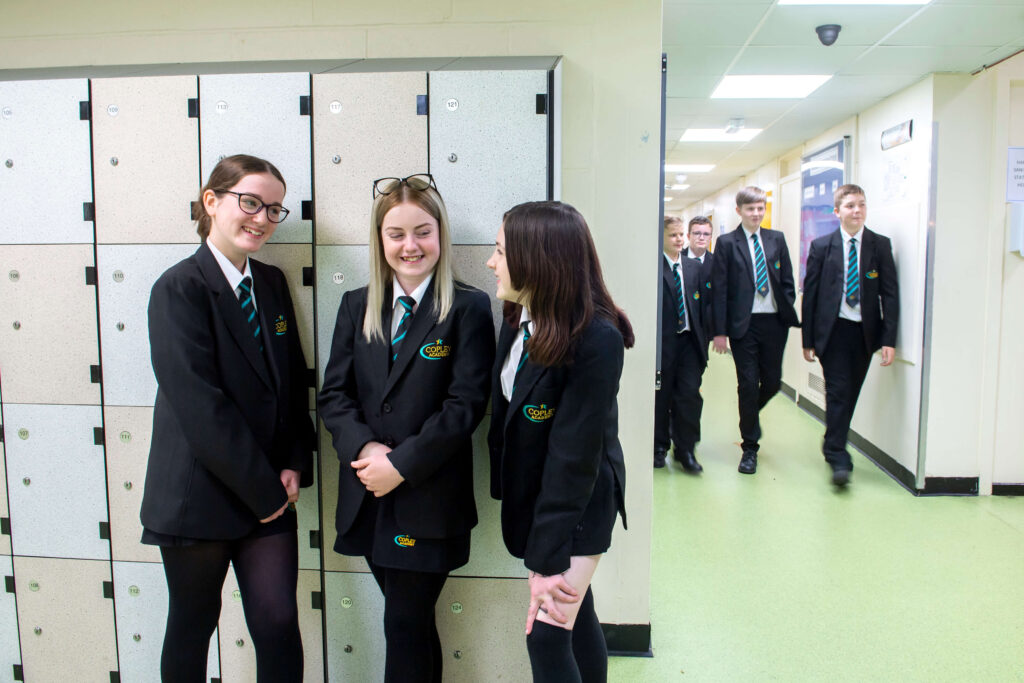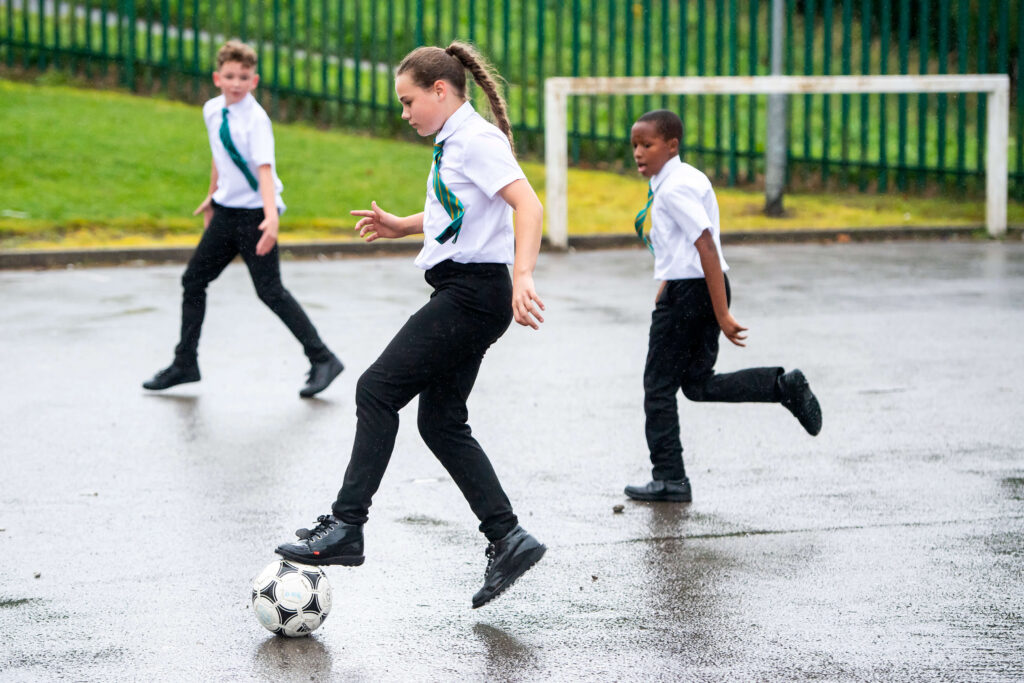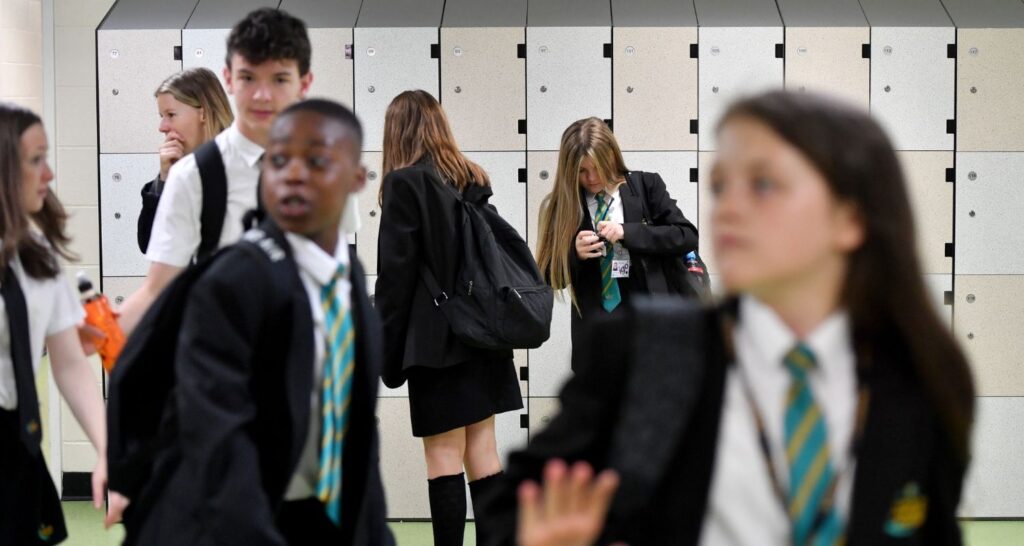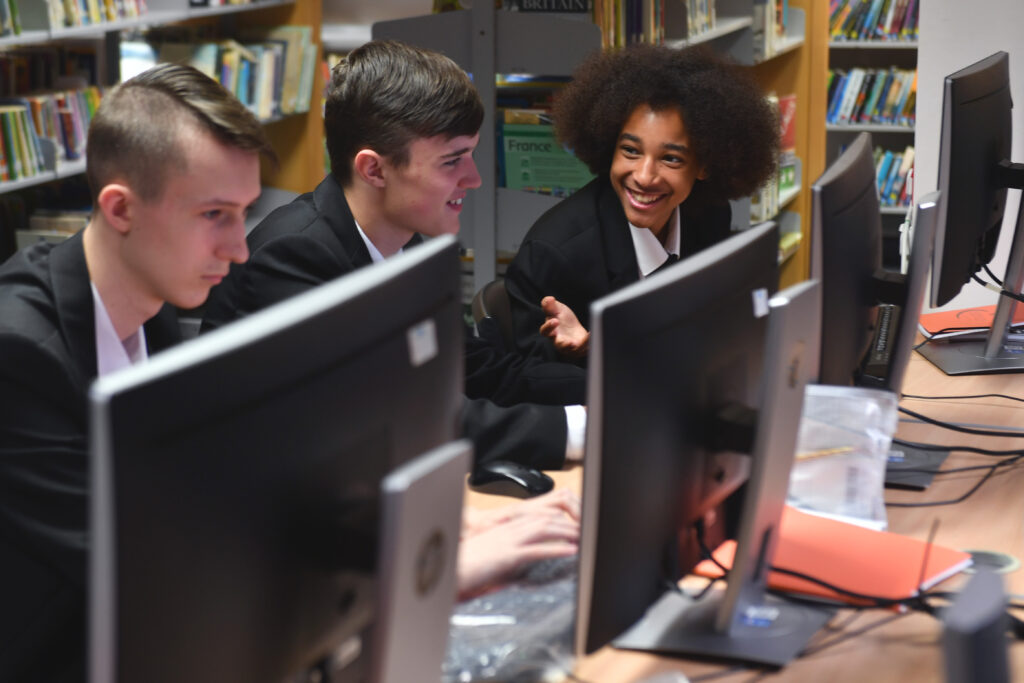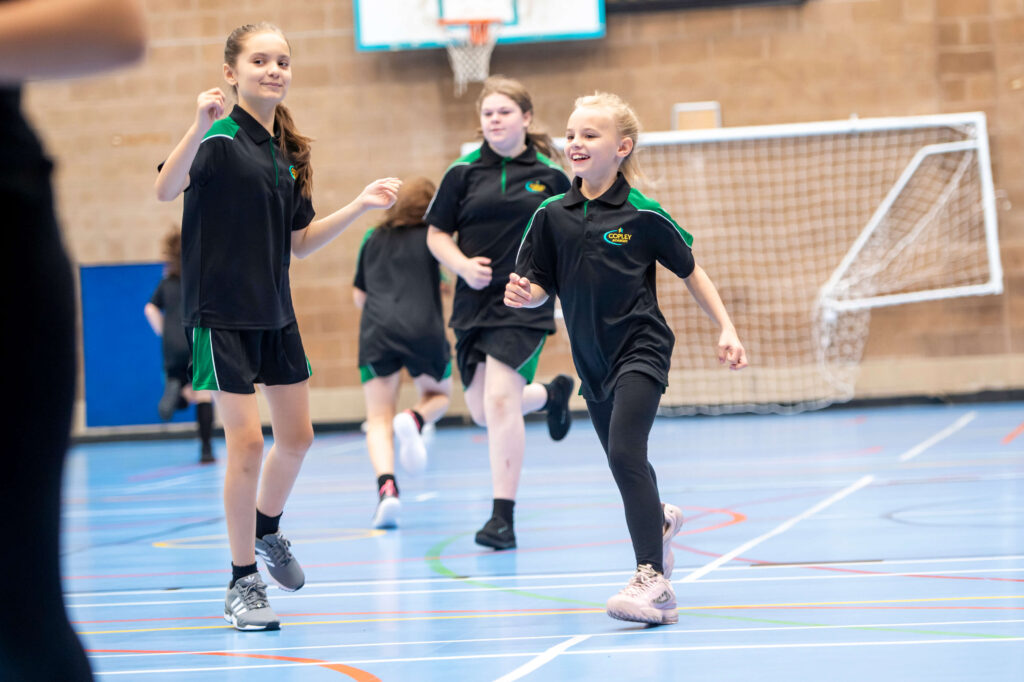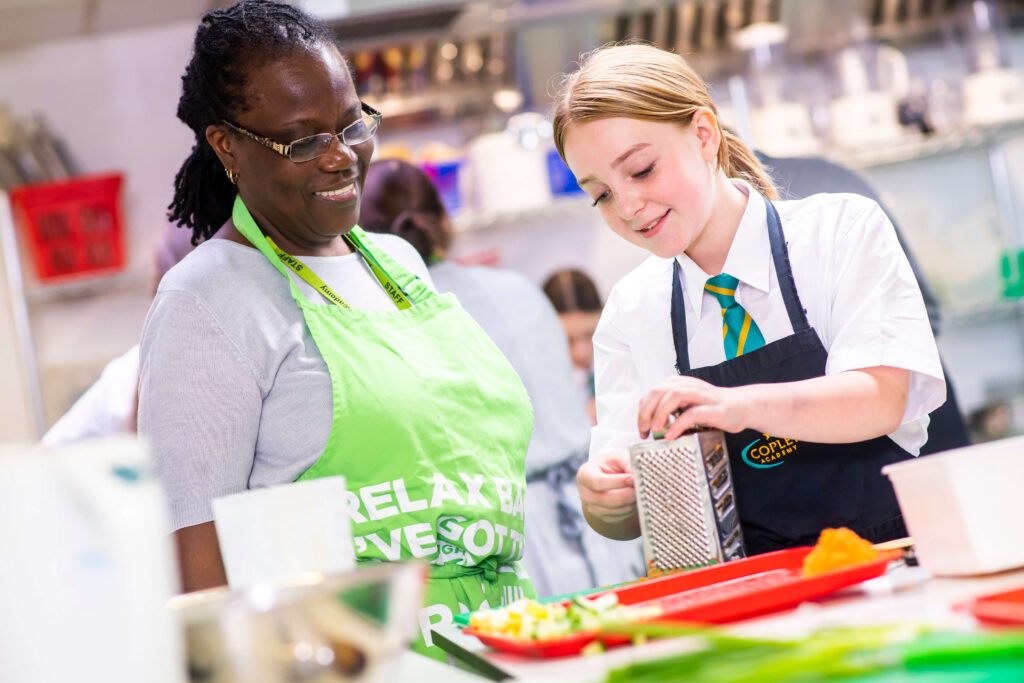
Summary of Curriculum
Due to the ever changing circumstances of Covid-19 and the blended learning model adopted by teaching staff, the ordering and delivery of the curriculum for 2021-2022 may have altered to reflect our contingency and recovery curricula as well as health and safety needs outlined in the school risk assessment for Coivd-19.
All Curriculum overviews for each subject have been updated for 2021-2022.
Our Curriculum Vision:
At Copley Academy we believe we can unlock every child’s potential through creating a curriculum that develops confidence, self-worth, aspiration and achievement, so that every young person departs with not just a set of qualifications that they are proud of but attributes that will allow them to be lifelong learners and pro-active and responsible members of society.
Our Curriculum Intent:
•To provide every student at Copley Academy, irrespective of their starting point, a fully inclusive, broad, balanced and ambitious curriculum that will enable them to continue their learning journey post 16 and onwards.
•To offer a dynamic and diverse curriculum that is relevant, enjoyable and challenging so that our students develop confidence, resilience and creativity.
•To employ innovative approaches to learning and teaching, at the same time as personalising the learning experience for all students, so that lessons are engaging, relevant and highly educational.
•To ensure that every individual will be cared for, supported and challenged to maximise their potential in order to create a feeling of self-worth and ambition.
•To deliver the GREAT values led curriculum to develop students’ character, confidence, resilience and independence so that they continue to be successful leaders and positive role models in their community.
We teach a broad and balanced curriculum across a 5-year learning journey to fully prepare our students for not only success at Copley Academy but for further study and the working world. The curriculum is broad, balanced and includes a range of vocational options at Key Stage 4 to meet the needs of all students as well as providing Key Stage 3 content that is as ambitious as the National Curriculum. Our destinations figure for 2020 was 99.3%, which was above the national figure.
Key Stage 3:
Our Key Stage 3 Curriculum is designed enable students to achieve a deep understanding of a range of skills and knowledge from a broad, balanced and relevant curriculum, encompassing those set out in the National Curriculum. The delivery of the curriculum is such that students know how the learning is connected to long term objectives, other subjects and the wider curriculum. Teachers continue to develop pedagogy, particularly related to metacognition, so that students can remember and recall information from a deep understanding of their learning. The learning in Key Stage 3 provides a platform for students to be able to access the next stage in their learning journey as well as learning for their future and becoming positive citizens within their community.
Students have the opportunity to study a range of creative and performance related subjects, enabling us to identify any gifted and talented students, and allowing students to discover and embrace what can become lifelong personal interests and talents. In Year 9 students select their options subjects to continue with at Key Stage 4 and are supported through the Great Lives Programme, Positive Steps and a range of other external providers to ensure that they make informed and relevant choices based around their strengths, talents, ambitions and aspirations. These activities and programmes are quality assured by the Senior Leadership Team.
Lesson Allocation KS3 – based on a 2 week timetable
| Year 7 | Year 8 | Year 9 | |
| English | 8 | 8 | 8 |
| Maths | 8 | 8 | 8 |
| Science | 7 | 7 | 7 |
| History | 3 | 3 | 4 |
| Geography | 3 | 4 | 3 |
| RS | 2 | 2 | 2 |
| MFL | 4 | 4 | 4 |
| GREAT Lives | 1 plus Tutorials | 2 x Tutorials | 2 x Tutorials |
| Art | 2 | 2 | 2 |
| Design Technology | 2 | 2 | 2 |
| ICT | 2 | 2 | 2 |
| PE | 4 | 4 | 4 |
| Drama | 2 | 2 | 2 |
| Music | 2 | 2 | 2 |
Key Stage 4:
The Key Stage 4 pathway provides students with the opportunity to build on their strengths, equip them with the necessary skills and experiences to further their career aspirations and prepare them for future career development and the world of work.
All students will study English Language, English Literature, Maths, Science (either Triple Science or Combined Science, Physical Education*, GREAT Lives* (PSHE) and Religious Education*. (*=none examined).
The majority of students must choose one subject from a choice of Triple Science, History, Geography, Computer Science, and a modern foreign language.
Students are not expected to choose the English Baccalaureate Suite of qualifications (by choosing History or Geography and a Modern Foreign Language) but can do if they wish and it is appropriate to their future plans.
Options Include:
GCSES-
History; Geography; German; Triple Science; 3D Design; Art; Textiles; Drama; Music
BTEC/Vocational-
Enterprise (Business); Digital IT; Media Studies; Health and Social Care; Hospitality and Catering; Sport Studies
Lesson Allocation KS4 – based on a 2 week timetable
| Year 10 | Year 11 | |
| English | 9 | 9 |
| Maths | 8 | 9 |
| Science | 8 | 8 |
| PE | 2 | 2 |
| RS | 1 | Via GREAT Lives |
| GREAT Lives | 2 x Tutorials | 2 x Tutorials |
| OPTION 1 | 5 | 6 |
| OPTION 2 | 5 | 6 |
| OPTION 3 | 6 | 5 |
| OPTION 4 | 6 | 5 |
Values Curriculum
At school we work hard to make sure that all pupils understand how to get the best out of their time with us. It’s crucial that pupils are safe, respected, responsible and ready to learn. It’s also vital that alongside working with pupils for exam success, we also prepare them for their futures; we want to support pupils to be able to contribute positively to society and to find success and happiness in the choices that they make. Our ‘Values’ work underpins this; It’s about attitudes and behaviours.
In these sessions, taught by the form tutor, pupils will follow a five-year programme called GREAT Lives that incorporates: traditional PSHE; Careers and Progression Guidance; Social, Moral, Spiritual and Cultural Education, Relationships and Sexual Education, and Fundamental British Values work. It will also embed with students through the Academy’s GREAT Values: Genuine, Respectful, Excellence, Achieve, and Together.
SEND Provision
We have a personalised provision for all our students including those with SEND. This includes our Achieve Program which focusses on thinking skills, social skills and emotional skills as well as employability skills and opportunities to embed core-curriculum learning. These branches are taught and developed together with the aim to build on the skills that students can draw upon to succeed, not only in all lessons but also beyond school life and in future employment. At KS4 students follow this programme as one of their option subjects. The Achieve Programme incorporates modules from the Prince’s Trust curriculum, and numeracy and literacy modules from Edlounge.
Setting
| English, Maths and Science | History, Geography , RE and Languages | Technology | Drama, Music, Art, IT | PE | Other Option Subjects | |
| Year 7, 8 and 9 | Set | Set | Mixed Ability | Tutor Groups Mixed Ability | Set by ability in PE | |
| Year 10 and 11 | Set | Set where possible. | Mixed Ability | Mixed Ability | Set by ability in PE | Mixed Ability |
TARGET SETTING, ASSESSMENT, MONITORING AND REPORTING
Target Setting
We use national progress expectations to set minimum target grades. These are reviewed on an annual basis. We believe at Copley that students should be able to aim to achieve beyond their ‘national expectations’ and targets should not be ‘capped’. Therefore, it is communicated to students, teachers and parents that these are minimum targets that students should achieve to be in line with national average, however it is a Copley expectation that students achieve beyond these targets.
Due to adjustment of national expectations each year and no information as yet related to the new KS2 scores (80 – 120) and progress expectations based on these, we have created a target range for Y7, Y8 and Y9 students, the lower number being the minimum expected grade explained above. We acknowledge that the KS2 result is only a snapshot of potential success and this range allows students to understand that their minimum expected grade could be between this range at this stage. For Y7 2020 cohort we have used Teacher Assessments and GL Assessments due to the cancellation of KS2 tests.
At KS4 we predict a minimum grade and an aspiration grade to motivate students to achieve maximise their potential. In addition, we recognize that students have specific talents and aptitudes for certain subjects and therefore we personalise targets. In KS4 subject teachers can, if they feel appropriate, increase the minimum target grade for individual students and this is reviewed at the start of each year in Y10 and Y11.
| KS2 Score | Minimum Target Range Y7, Y8 and Y9 |
| 80-85 | 1-2 |
| 86 – 91 | 3-5 |
| 92-97 | 4-6 |
| 98-102 | 5-7 |
| 103-108 | 6-8 |
| 109+ | 7+ |
| KS2 Score | Minimum Target Y10 and Y11 |
| 80-85 | 2 |
| 86-91 | 3 |
| 92-96 | 4 |
| 97-102 | 5 |
| 103-108 | 6 |
| 109-113 | 7 |
| 114+ | 8 |
Assessment, Monitoring and Reporting at KS3
We use a range of methods of assessment at KS3 to enable us to monitor progress of students at Crofton Academy. These include the following;
- GL Assessments that take place in English and Maths October in Y7, July in Y7, and June Y8,
- Progress checks,
- Accelerated Reader for students below their chronical reading age.
We analyse and use this data to inform us of the following:
- Identify the skills gaps of all students, particularly those who came into Crofton below national expectations in English and/or Maths. (Catch up)
- Inform planning for teachers and subject coordinators to ensure teaching and learning reflects the skills and knowledge gaps for all students.
Assessment
We carry out a wide range of different assessments throughout the year. In all years students will experience a arrange of low stakes testing to gauge if students are on track to achieve endpoints, end of topic tests, end of term tests and formal end of year exams carried out in the hall. All assessments are appropriate to the subject and therefore are a mix of practical and written assessments.
Progress Descriptors
We appreciate that students’ progress at different rates particularly in Y7, Y8 and Y9 when they are learning new subjects and skills. Taking this into account we have a 5 point system of monitoring progress.
| 1 | Above Expected Progress This suggests that on current performance your son/daughter is likely to exceed their GCSE destination grade range. |
| 2 | Expected Progress This suggests that on current performance your son/daughter is likely to achieve their GCSE destination grade range. |
| 3 | Below Expected Progress This suggests that son/daughter may reach their GCSE destination grade range. However, working in this way may not be sufficient to achieve this target. |
| 4 | Progress is a Concern This suggests your son/daughter is currently underachieving and not achieving in line with expectations. |
| 5 | Not Applicable The teacher has not taught your son/daughter often enough to make an accurate assessment of their progress. |
From the information we analyse progress overall and individual groups to identify students that need intervention of some kind. This is then tailored to meet the needs of the individual student and their barrier to making progress.
The progress check is reported to parents/carers twice a year. Enough time is given to ensure the accuracy and quality of the information communicated. Built into the reporting cycle is department standardisation, moderation and quality checking of progress data by Heads of Department, Key Stage Leaders and the Senior Leadership Team.
In Y10 and Y11 teachers report the predicted grade they believe the students will achieve based on how they are performing in assessments and the standard of work they are producing.
Attitude to Learning Descriptors
We have created ambitious expectations regarding expectations of students’ attitudes to learning. This is to drive standards and provide a more consistent benchmark of how students are approaching the curriculum and their learning. This is reported on alongside progress data.
| 1 | Highly Motivated – The student is well focussed and active in lessons, taking great pride in their classwork and homework. They are resilient; ask for and act upon feedback in order to improve their work. They complete all tasks set to the best of their ability. |
| 2 | Engaged – The student is focussed and they participate well in lessons, often taking pride in their classwork and homework. They show a desire to improve and regularly act upon feedback. |
| 3 | Passive – The student is not always focussed and may need prompting to start work. They tend to avoid challenging tasks and do not always ask for help when it is needed, or act upon feedback to improve. |
| 4 | Disengaged – The student shows little focus and needs encouragement and monitoring to complete the learning tasks. They rarely seek help when it is needed and do not always respond to feedback on how to improve their work. |

Quick Links
Key Dates
Useful Documents

PROSPECTUS
Text Goes here

SPECIAL EDUCATIONAL NEEDS
text goes here
CONTACT THE SCHOOL
Have an enquiry or some feedback for us?rnFill out the form below to contact our school.
